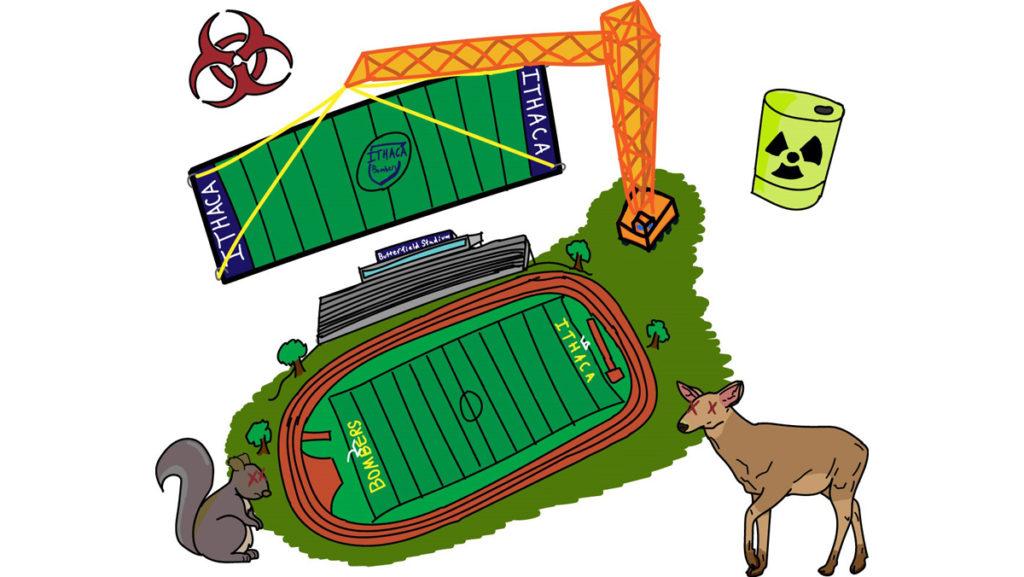Ithaca “Green” College is planning to use a donation of $3 million to build an artificial turf football field — turf that is full of toxic chemicals, is a source of pollution and increases greenhouse gas emissions. Artificial turf contains “forever chemicals” like PFAs that never break down. Every single artificial turf that has been tested contains PFAs in it. Not only will this forever stay in the environment, but all these known and tested PFAs are risk factors for cancer and diabetes.
The college claimed in their announcement that artificial turf is better than natural-grass turf, which requires fertilizers and pesticides. The environmental and health risks artificial turf holds are higher than the risks that come from fertilizing the natural turf. Every phase of artificial turf’s life cycle is harmful: along with PFAs, artificial turf’s grass blades contain polyethylene — the most common plastic that emits greenhouse gasses, ethylene, propylene and methane into the atmosphere as it breaks down. Artificial turf also creates large amounts of microplastics — small plastic pieces that are harmful to aquatic life. For natural grass, on the other hand, there are more economically feasible, fossil fuel-free fertilizers. After all, in what world is plastic considered better than natural?
Not only is artificial turf unbelievably harmful, but its industry is the one pushing the idea of artificial turf being better for the environment. They make these claims without citing scientific research. The artificial turf industry is part of the global plastic industry which itself should say enough about their product. These industries greenwash society for their own income while harming the planet and bringing all of us closer to catastrophic climate disaster.
The artificial turf industry is not the only one that shows no scientific research background, but the college, too, admitted to never speaking to an outside environmental scientist about this decision. Science is giving the answers we need, we simply need to take its word.
The college made this decision in order to expand athletes’ play time in outdoor field sports — which can be done on natural grass if it is used correctly — and to have similar field conditions like most of its competitors. The college should ask itself if this is a rational decision, taking into account all the horrible consequences artificial turf brings. Climate and safety are not fields that should be put at stake.
Ithaca College’s decision to replace Butterfield Stadium with artificial turf is an act of ignorance and lacks sympathy toward the environment. The college — which is trying to be carbon neutral by 2050 — must revisit this decision and choose the correct one by listening to scientists’ advice. The college must choose a path that will not put the environment and human lives at risk any more than it is already.














